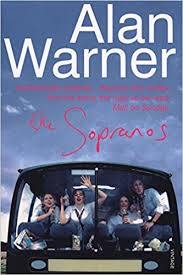
https://www.bbc.co.uk/iplayer/episode/b09xptp8/reggie-yates-searching-for-grenfells-lost-lives?ns_mchannel=email&ns_source=pan_newsletter&ns_campaign=PANUK_NLT_13_SCO_HospitalComeHome&ns_linkname=bbctwo_reggieyatesgrenfellsearchingforlostlives_FactualCurrentaffairs_reggieyatesgrenfellsearchingforlostlives&ns_fee=0
I write stuff, which nobody much reads, but I’ve got a roof over my head and I’m not hungry or cold and need to queue up at my local foodbank. I was blessed as a child in a family of five. Nowadays, out of a classroom of 30 children, nine of those kids will be living in poverty. It’s black and white. The blackened carcass of the 24-story block of Grenfell Towers is a reminder of how the propaganda war against the poor costs lives. 71 lives, if official figures are to be believed.
If I lived in Grenfell Towers I wouldn’t believe that. We follow Reggie Yates, a black Londoner in the affluent Royal Borough of Kensington and Chelsea whose representatives ran for cover and immediately played the blame game. Remember Teresa May’s scuttling appearance before she ran away. She’s one of them. No one would ever classify me as a royalist, but good old Queen Elizabeth II, with her common touch, showed the current Prime Minster the way.
Reggie Yates also has the common touch. These are his people. There were handpicked stories of courage and tragedy. Ligaya Moore, for example, came to London from the Philippines in the seventies to work as a nanny for the kind of rich white people that dwell in Kensington and Chelsea. Her niece from the Philippines came to London to get answers from the coroner about how her aunt died. She thought that burning houses was something that shouldn’t happen in what she described as a ‘first-world country’. They were able to tell from her teeth that it was indeed Ligaya Moore and tell her niece that she had died in her sleep. Really, those dentists are marvellous. Reggie, Reggie, objective doesn’t mean being stupid.
OK, I’ve got that off my chest. The survivors of Grenfell Towers don’t feel they are being adequately represented. I’m with them on that one. Liverpool F.C. banned represents of The Sun newspaper from the inside of their ground. Queens Counsels tend to be rich white men. It’s a sore one. Part of the old boy’s network that objectified the poor as a problem to be controlled and contained while taking money from them and giving it to themselves. Certainly, more has been spent on housing the survivors of Grenfell towers that it would cost to build a new block, or to give them each an adequate house. That’s not part of the remit, of course, because that would point at systematic failure at a national level, which, of course, was what it was.
Hatred of the poor, stoked up by demagogues such as George Osborne and David Cameron, right-wing think tanks drip fed by oligarchs and billionaires led directly to cost cutting on an industrial scale. Cheapest is best for the poor and if the cladding isn’t fireproof then no matter, because Grenfell Towers was clad so that it wouldn’t look so tacky among the other high rises. Poor people, out of sight, out of mind. Nothing new there.
There’s stories of courage. A young British Moroccan, Yasin El-Wahabi, aged 21, who was outside he block and ran into the tower to save his family on the twenty-first floor. Yeh, he died in his sleep. Reggie followed Yas and his families’ immigrant roots back to Balkadi in Morocco. Grenfell Towers being called little Morocco because 300 families had come to that area to live and work in the catering and hospitality industries from that coastal town. Ironically, Balkadi is on the route in which immigrants try to escape Africa and gain entry into Europe. Refugees washing up on the shore was commonplace, but Grenfell Towers made a splash, because it was a first world county.
This was a flying visit. A bit of local colour. Perhaps Reggie should have asked if there were any Moroccans from that part of the world that had went to London, perhaps to sleep on somebody’s couch or floor, and therefore wouldn’t be registered on official lists, but were no longer able to be contacted. Just an idea. That’s what journalists do Reggie.
Tony Disson was a dyed in the wool Londoner. He loved boxing, loved his wife, but was separated from her and his kids, but didn’t make it. His son Charlie was in prison, which was a blessing. Tony was seen shouting at the window. He spoke on the phone to his ex-wife and then he didn’t.
Jessica Urbano Ramirez, was one of 18 children, on official figures to lose their lives, which included an unborn child. Tragic.
Mohammad Alhajali, a Syrian asylum seeker escaped war with his brother to London and Grenfell Towers. He thought his brother Omar was behind him as he ran down the stairs. He wasn’t, he lost his life in the fire. If he’d died off the English or Italian Coast many people would be cheering and totting up the hypothetical money saved. One of the great lies.
We live in a sick society. Grenfell Towers is a reminder. Those that forget those lessons of history and all that. As time passes those that lived in Grenfell can be quietly airbrushed out of the larger picture. Truth, now there’s a thing worth pursuing. I doubt it will happen whatever Reggie says.









